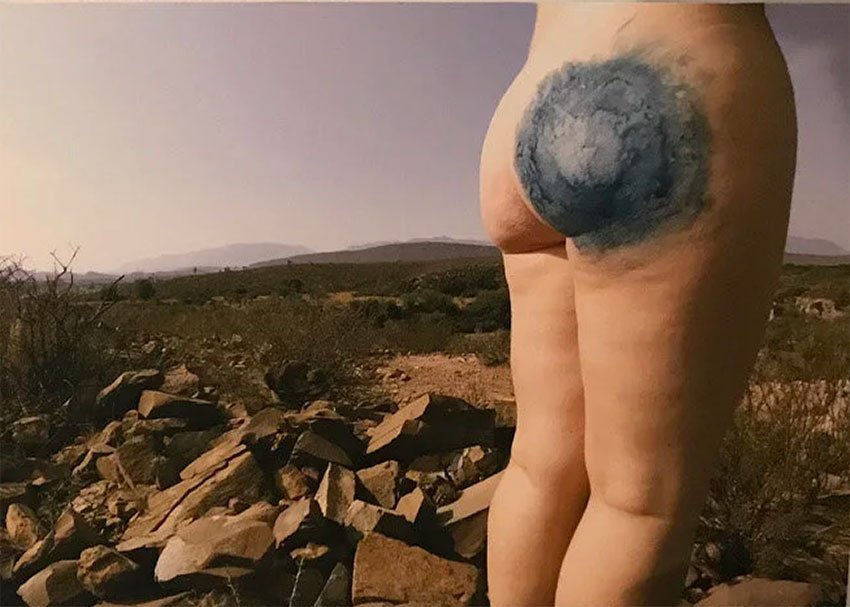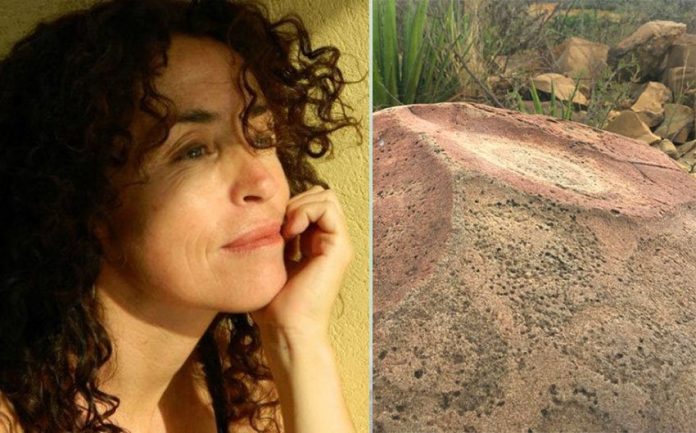A piece of performance art by Argentine-Mexican artist Mercedes Aquí is attracting criticism from many who say it shows a lack of respect for Mexico’s cultural heritage.
Titled Ancla, the piece is a photographic record of a performance by Aquí in which she is seen urinating on a petroglyph in General Cepeda, Coahuila, in order to dilute natural pigments and make a print of the petroglyph on her buttocks.
The photo series was exhibited in the Museum of Graphic Art in Saltillo from May 30 to June 1 of this year.
Aquí staged her performance in El Gavillero, where there is nothing stopping visitors from touching the ancient petroglyphs.
In a Facebook post, Aquí wrote that the piece “speaks about identity, memory, roots, the body and territory,” and said she was not aware of any requirement to get official permission for her project.

But not everyone agreed. In an interview with Milenio, art critic Avelina Lésper blasted the piece, calling the artist a vandal and an exhibitionist.
“What she did isn’t art,” said Lésper. “It’s the same thing that always happens with these artists, that their arrogance and despotism makes them feel entitled to commit vandalism and disguise it as art with their explanations.”
Francisco Aguilar Moreno, delegate of the National Institute of Anthropology and History (INAH) in Coahuila, told the newspaper Vanguardia that the INAH is investigating whether Aquí damaged the petroglyphs to decide whether to file a formal complaint against her.
“I’m not against art projects, what I am against is vandalism and damage to our heritage,” he said.
Aquí welcomed an investigation, saying that the natural inks she used could not have damaged the petroglyph. She also said that many of the criticisms directed against her are products of sexism and xenophobia.
“Marking a territory with liquid is usually associated with men, not women,” she wrote. “Exhibiting an apparent urination has provoked violent reactions.”
Born in Argentina, Aquí has lived in Mexico since 1978.
Source: Vanguardia (sp), Milenio (sp), El Universal (sp)
CORRECTION: The artist as pictured in the previous version of this story was someone else altogether. Sorry for the error.
